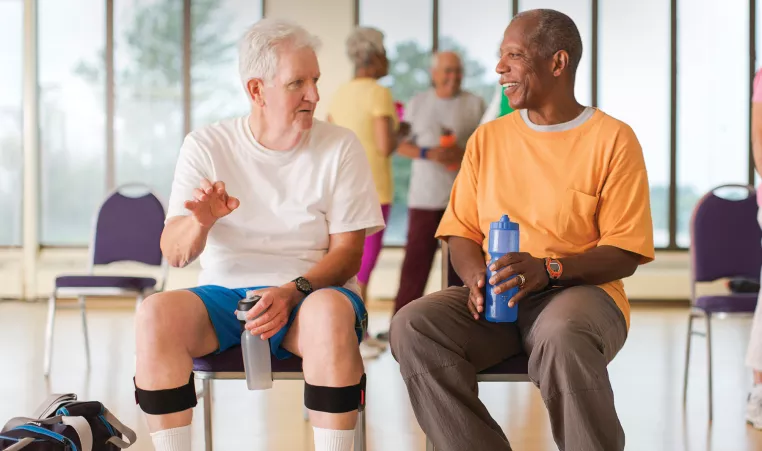
April is Parkinson’s Awareness Month
Welcome to April, Spring, and Parkinson’s Awareness Month. Parkinson’s disease was first identified over 200 years ago by James Parkinson and in his honor the entire month of April is dedicated to PD awareness, education, and early detection of the disease. It’s estimated that more than 6 million people worldwide are affected by the disease with 1 million being in the United States. Parkinson’s is unique to each person and considered a movement disorder. It occurs when brain cells that make dopamine, a chemical that coordinates movement, stops working or dies. Movement is noticed through tremors (most popular), slowness, stiffness, walking gait and balance problems.
Here are some quick facts about Parkinson’s disease:
- About 70% of people with PD experience tremors.
- PD symptoms often vary throughout the day, worsening with anxiety, fatigue or as medication wears off in between doses.
- Regular exercise can help manage PD symptoms and improve quality of life.
- Carbidopa/levodopa (brand name Sinemet) is still the “gold standard” in PD medications.
- It is common for people with PD to need adjustments to treatment as symptoms progress.
What are some of the symptoms? They are different for everyone, for most, symptoms develop gradually over the years and worsen over time. PD is typically diagnosed after 60 years of age, but there are about 4% of people diagnosed under 50 years of age and considered to have young-onset Parkinson’s disease. Men are 1.5 times more likely to have Parkinson’s than women, and certain geographic areas and ethnic groups experience higher rates of PD.
You might be wondering, “how is this happening”? Many researchers believe that is a combination of environment and genetics. About 10-15% of people with PD have a genetic link. A family doctor can begin the diagnosis by studying symptoms, medical history and a physical examination. A doctor can also refer their patients to a neurologist for confirmation or further diagnosis and treatment options.
What are some treatment options? Parkinson’s can be treated in many ways beginning with the right medications that boost, mimic or replace dopamine. Regular exercise also benefits movement and non-movement symptoms as well as a social outlet for them and their care takers. Surgical intervention is an option used for some that qualify.
A health team can be necessary depending on support and lifestyle. Physical and occupational therapists can help with everyday tasks as well as speech therapy to help with voice and jaw movement. Mental health professionals, urologists and gastroenterologists are other critical team members to be considered depending on symptoms.
What can we do as a society?
- Find exercise classes. The YMCA of Greater Omaha offers Total Brain and Body at many of its locations. To learn more about Total Brain and Body and which location offers classes visit our website.
- Participate in Parkinson’s Nebraska’s “Walk the Park”, or donate to Parkinson’s Research at www.parkinsonsnebraska.org
- Volunteer at Parkinson’s Nebraska or become a YMCA Volunteer for Total Brain and Body
- Become a Total Brain and Body Instructor
- Educate yourself about Parkinson’s Disease
- Listen to those living with Parkinson’s Disease and learn about their story and journey
Until there is a cure we can support, serve, and grow a caring community for those living with Parkinson’s Disease.
Jen McCarthy, Health and Wellness Director at the Southwest YMCA.
References:
Parkinson’s Foundation. https://www.parkinson.org “What is Parkinson’s?”
Parkinson’s Nebraska. https://wwwparkinsonsnebraska.org “Walk the Park”
The Michael J. Fox Foundation. http://www.michaeljfox.org “Parkinsons’s 101”
